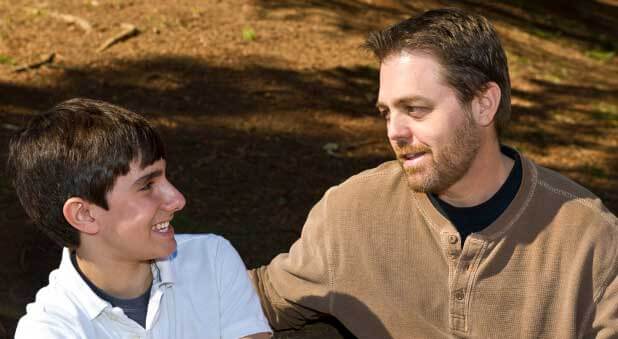Not long ago, a Christian speaker admitted to his audience that his son was in prison for burglary.
“But,” he said, “we’ve done a great job as parents.”
The crowd looked puzzled.
“Because actually,” he added, “he was born an ax murderer.”
Naturally, the audience laughed. It’s a great line. There’s absolutely no truth in it, but it’s a great line. And in its own weird way, it hits the heart of what we’re supposed to be doing as parents—showing and telling our kids how to become good, reliable, upstanding adults, and as we do so, gently guiding them away from the serial killer career track.
Parents are teachers. And from the day our kids are born, we’re on the job. Sometimes we don’t even know that we’re teaching. Our kids learn how to smile and laugh and talk simply by watching and listening to us, and they figure out quickly that screaming is a great way to get some attention.
And as they grow up, they continue to learn from us by observation, often regretfully so. Kids who unexpectedly start cussing in front of grandma may have picked up those choice words from daddy during a particularly stressful drive to school. Statistically, teens who become smokers or drinkers took their first cues from mom and dad. The old cliché of “Do as I say, not as I do”? Children hardly ever listen to that piece of advice.
But often we do give our kids very intentional lessons. We encourage them to walk and show them how to use the potty by themselves (in the appropriate receptacle, we hope). We teach them to always tell the truth and to look both ways before crossing the street. We train them how to hold their silverware correctly and how to use a stick shift.
But I believe we have a more fundamental and basic lesson to teach our kids. We must teach them what reality is. We must show them how to look at the world with a clear eye and sober heart. We have to show them that while beauty may be in the eye of the beholder, truth isn’t. Truth remains the same wherever one finds it. And a key to growing up on this planet reasonably healthy and happy is to recognize the truth when we see it.
It’s a trickier proposition than you might think, particularly in our confusing 21st century. Lots of people out there today tell us that truth is really a matter of opinion—“You have your truth, I have mine.” Spin obscures everything, from advertising pitches and marketing gimmicks to political punditry and sophistry. Plenty of people out there try to convince us that up is down (or at least a little crooked or slanted). Our own emotions and biases can obscure the real truth, and so we have to teach our sons and daughters how to look past what they feel in the moment and see the bigger picture.
Of course, for us dads to teach the truth to our kids, we have to know it ourselves. And that’s where we often struggle. After all, we have our own emotions and biases to contend with. We have our own susceptibilities to spin. And sometimes our take on the world might be just plain off.
If our kids got locked away for burglary, we might very much want to believe that our good parenting saved them from an even worse fate. But the truth might look a lot different.
And as fathers, we need to do the best job possible to know reality—not as we’d like it to be or fear it to be, but as it really is.
Jesus addressed that sense of reality in Matthew 7:3–5: “Why do you look at the speck of sawdust in your brother’s eye and pay no attention to the plank in your own eye? How can you say to your brother, ‘Let me take the speck out of your eye,’ when all the time there is a plank in your own eye? You hypocrite, first take the plank out of your own eye, and then you will see clearly to remove the speck from your brother’s eye.”
In a sense, Jesus asked us, “Do you know reality? Not what you think you see, not what you think you feel. Do you know what is real?”
As fathers, we need to know reality. We must know how others see us. How we really speak to others. The difference between fact and opinion.
We need to, for instance, be real in how we see ourselves and our own strengths and weaknesses. Where have we come up short in raising a family? When have we failed to spend time with our wives and kids? How did those shortcomings affect those around us? We have to be honest with ourselves, because only then can we be honest with our children. We need to apologize when we do something wrong and make it up to them the best way we know how.

And, most importantly, we need to get on the same page with Mom, our child-rearing partner.
Taken from The Good Dad by Jim Daly. Copyright © 2014 by Jim Daly. Use by permission of Zondervan. www.zondervan.com











































